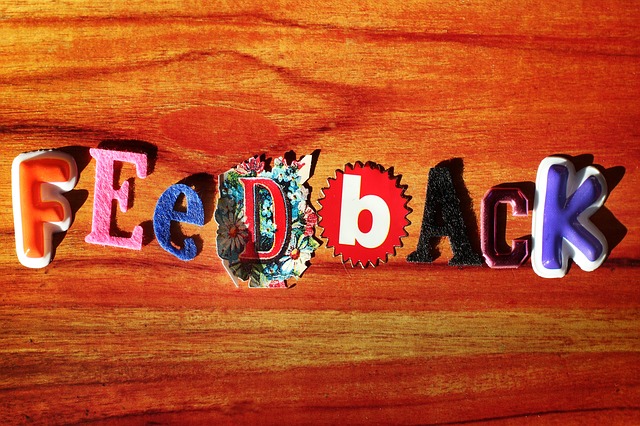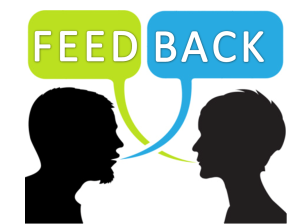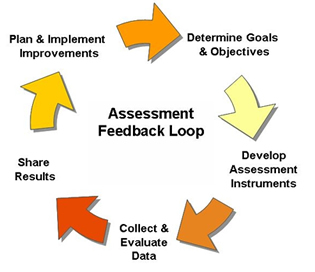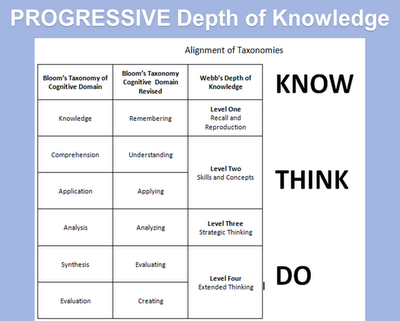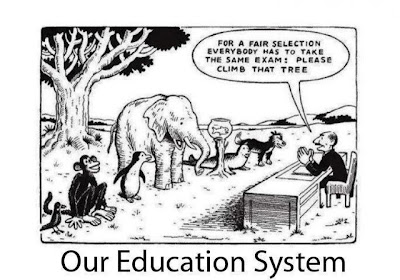The discourse surrounding grades and grading practices has been intensifying of late.
Grade reform has taken a seat next to some of the other big topics being discussed at the education table.
It's no surprise considering the subjectivity students, parents and educators experience when it comes to grading.
So, before going any further... we have to agree that grades serve a single and critical purpose:
Grades exist to provide students input and feedback on their progression toward achieving mastery of a particular set of learning goals/objectives.
In other other words... to communicate.
If we can all agree with this definition of grades, then the rest of the blog post should hopefully make sense.
The question now is 'how can we most effectively provide our students input and feedback on their progression toward achieving mastery?'
Now, before you stop reading, ask yourself one question:
If you answered yes here, then let's at least keep an open mind of how one could make this work.
Yes, of course, you have lots of students in your class and it seems near impossible to carve out time to have one-on-one conversations. Especially to have these conversations on a more frequent and as needed basis.
However, what if you took time at the beginning of the year to train your students on strategies to self-assess to make these conversations more impactful and efficient? In other words, make the conversations move along more quickly.
What if you intentionally made time in the day to have these conversations and removed other stuff that just doesn't have the same level of impact on student learning?
What if these conversations served to kill multiple birds with one stone... isn't it possible to include and embed multiple learning targets/objectives in the middle of these conversations? Think creatively here for a moment...
Also, keep in mind that these conversations don't always have to involve you, the teacher. Don't forget about the other students in the classroom...
Hattie's research is quite clear on what most impacts student learning. When students are able to assess themselves and then have a conversation/reflection opportunity about the self-assessment, learning goes up. Imagine it's not just one single teacher who is asked to talk with students about their self-assessment, but rather other students in the classroom too. Imagine the power of those conversations when students are trained on how to communicate with each other about their learning progression...
In closing, what's the best and most effective way to communicate? I think most would say one-on-one conversations.
Make no mistake... I'm definitely not saying this is easy. What I am saying is that I think it just might be worth it...
If you've made this work in your classroom, please share your story below.
Grade reform has taken a seat next to some of the other big topics being discussed at the education table.
It's no surprise considering the subjectivity students, parents and educators experience when it comes to grading.
So, before going any further... we have to agree that grades serve a single and critical purpose:
Grades exist to provide students input and feedback on their progression toward achieving mastery of a particular set of learning goals/objectives.
In other other words... to communicate.
 |
| http://goo.gl/yOCzpY |
I believe the answer to this question is more conversations...
Now, before you stop reading, ask yourself one question:
Do you believe that in an ideal word without time constraints and with an unlimited amount of 'you,' having more one-on-one conversations would be more impactful than continuing the practice of letter grades?
Yes, of course, you have lots of students in your class and it seems near impossible to carve out time to have one-on-one conversations. Especially to have these conversations on a more frequent and as needed basis.
However, what if you took time at the beginning of the year to train your students on strategies to self-assess to make these conversations more impactful and efficient? In other words, make the conversations move along more quickly.
What if you intentionally made time in the day to have these conversations and removed other stuff that just doesn't have the same level of impact on student learning?
What if these conversations served to kill multiple birds with one stone... isn't it possible to include and embed multiple learning targets/objectives in the middle of these conversations? Think creatively here for a moment...
Also, keep in mind that these conversations don't always have to involve you, the teacher. Don't forget about the other students in the classroom...
Hattie's research is quite clear on what most impacts student learning. When students are able to assess themselves and then have a conversation/reflection opportunity about the self-assessment, learning goes up. Imagine it's not just one single teacher who is asked to talk with students about their self-assessment, but rather other students in the classroom too. Imagine the power of those conversations when students are trained on how to communicate with each other about their learning progression...
In closing, what's the best and most effective way to communicate? I think most would say one-on-one conversations.
Make no mistake... I'm definitely not saying this is easy. What I am saying is that I think it just might be worth it...
If you've made this work in your classroom, please share your story below.
